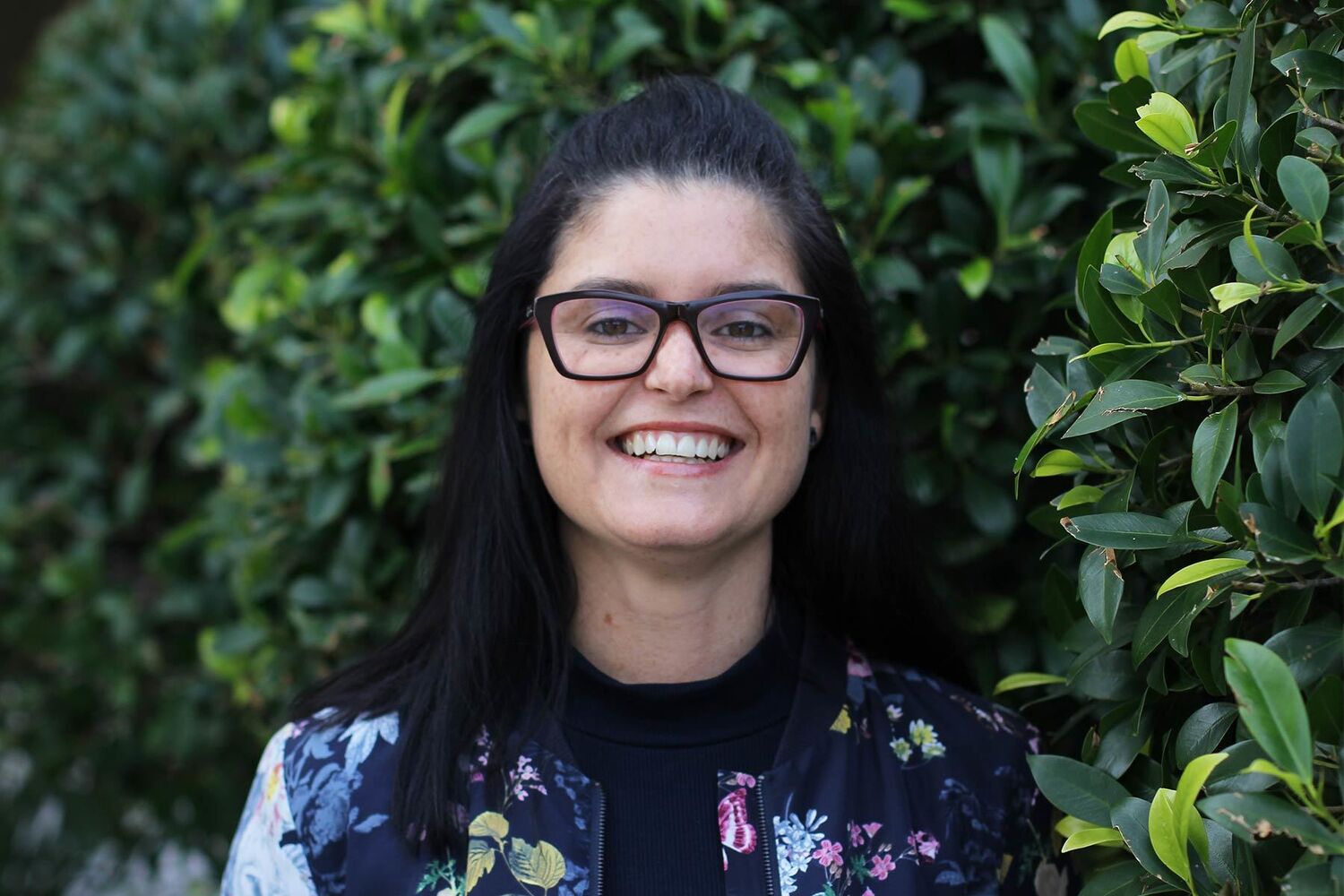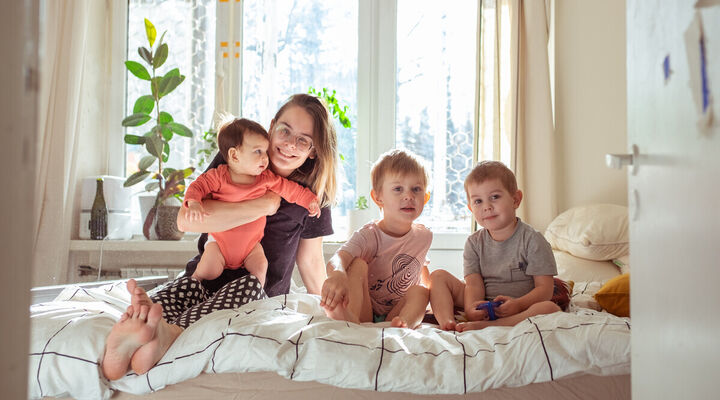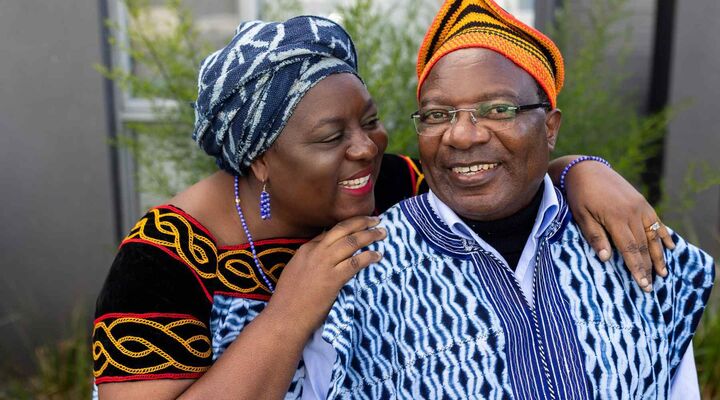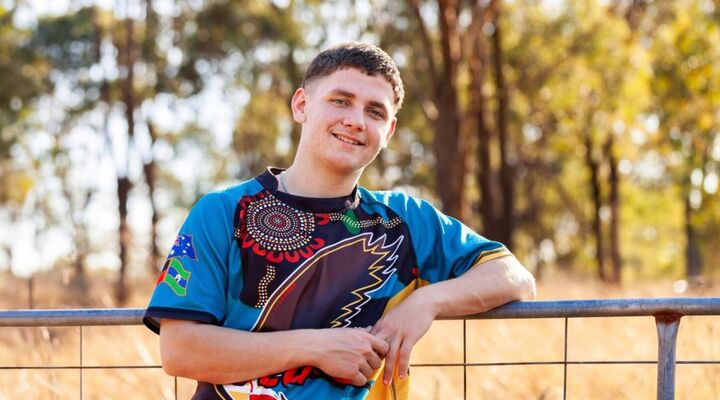An in-depth understanding of the challenges vulnerable children and families face and the importance of quality compliance systems to ensure safety, is the driving factor for MacKillop Family Services’ Carer Recruitment and Development Manager, Jasmine Perry. Jasmine has worked in Queensland, New South Wales, Victoria, Western Australia and Cambodia, developing, implementing and managing services in child safety, youth justice, disability, community inclusion and development.
Intent on enrolling in the police force after graduation, Jasmine found her first full-time job working on a foster care program to help support her studies in community service. 16 years later, Jasmine never joined the ranks of the men and women in blue and remains fully immersed in the world of foster care.
Jasmine knew she had found her niche,
Over the years, I’ve gained a lot of experience working in the community sector with a focus on foster care, residential care, youth and family services, emergency outreach and youth justice. I’ve also worked with the Department in New South Wales and developed social work programs in Cambodia. I realised how important foster care is back in my first job at uni and from there on, I knew this was the area I wanted to work in.
Initially starting work with MacKillop five years ago, Jasmine began working as Area Manager in Metro Sydney,
“It was a great time to come on board with MacKillop. We were building the program and had the opportunity to go back to basics and make sure we put everything in place to get the right people to become foster carers. I knew my past experience had equipped me with the skills to identify the best carers and for me, carer recruitment is key to any successful placement. Children going into foster care have often experienced trauma and it is imperative that we put them in a safe space with people who will support and nurture them so that we do not add to that trauma.”
The need for foster carers in Australia continues to grow, from 2016–17, 57,221 children were in out-of-home care.* Jasmine has found that many people don’t realise they could be foster carers as there are many different types of foster care which can work around different lifestyles,
“We have carers of all ages, sexes, partnered, single, retired, working, renting – the most important thing is for people to want to provide a safe, secure and nurturing environment. Babies, children and young people need all sorts of different homes, so if foster care is something people are interested in, they should contact us and we will walk them through the steps to become an accredited foster carer.
Jasmine is also passionate about breaking down the stigma around kids who are in care,
“Just like there’s no one type of carer, there’s no typical child who needs care. Children need homes for all sorts of reasons, sometimes it is respite care to give parents a break, sometimes parents are ill or in hospital and unable to look after their children. We have newborn babies, primary school children and teenagers who need safe and secure care, our problem is that there are not enough foster carers to cater for the need.”
At MacKillop, Jasmine is most proud of the trauma informed care training that has been introduced throughout the agency. All foster carers receive trauma informed training where they learn about attachment theory, brain development and the profound effect trauma can have on the behaviours of children. Carers are also equipped with practical skills and techniques to use in their interactions with children through positive parenting techniques.
“Often, you see an immediate change in the dynamic of a relationship when a carer understands the trauma response. They see things differently once they take a step back and think about what has happened to this child to provoke behaviours. That mindset, along with what I call ‘stickability’, where carers commit to stand by the child in their care whatever the circumstances, is a great indicator of a successful foster care relationship. That and a sense of humour which really helps deal with kids, case workers, form filling and everything else that a foster care placement can bring”.
“It is really important to give top priority to the feelings and needs of the children and young people we work with. A child-centric approach which looks at all aspects of wellbeing, where we address emotional needs as much as physical needs leads to better outcomes for everyone involved. I am so proud to play a part in supporting our carers to make sure the children in their care maintain links with their community and culture.
“The world of foster care is constantly evolving and identifying strengths and weaknesses of existing foster care models and implementing efficient systems in resource limited settings can be challenging. It is also immensely rewarding and I would say exactly the same as most of our carers who tell me foster care is the best thing they’ve ever done: Even on the tough days, you know that you are making a real and meaningful difference to someone’s life.”
*AIHW Child protection Australia 2016–17






